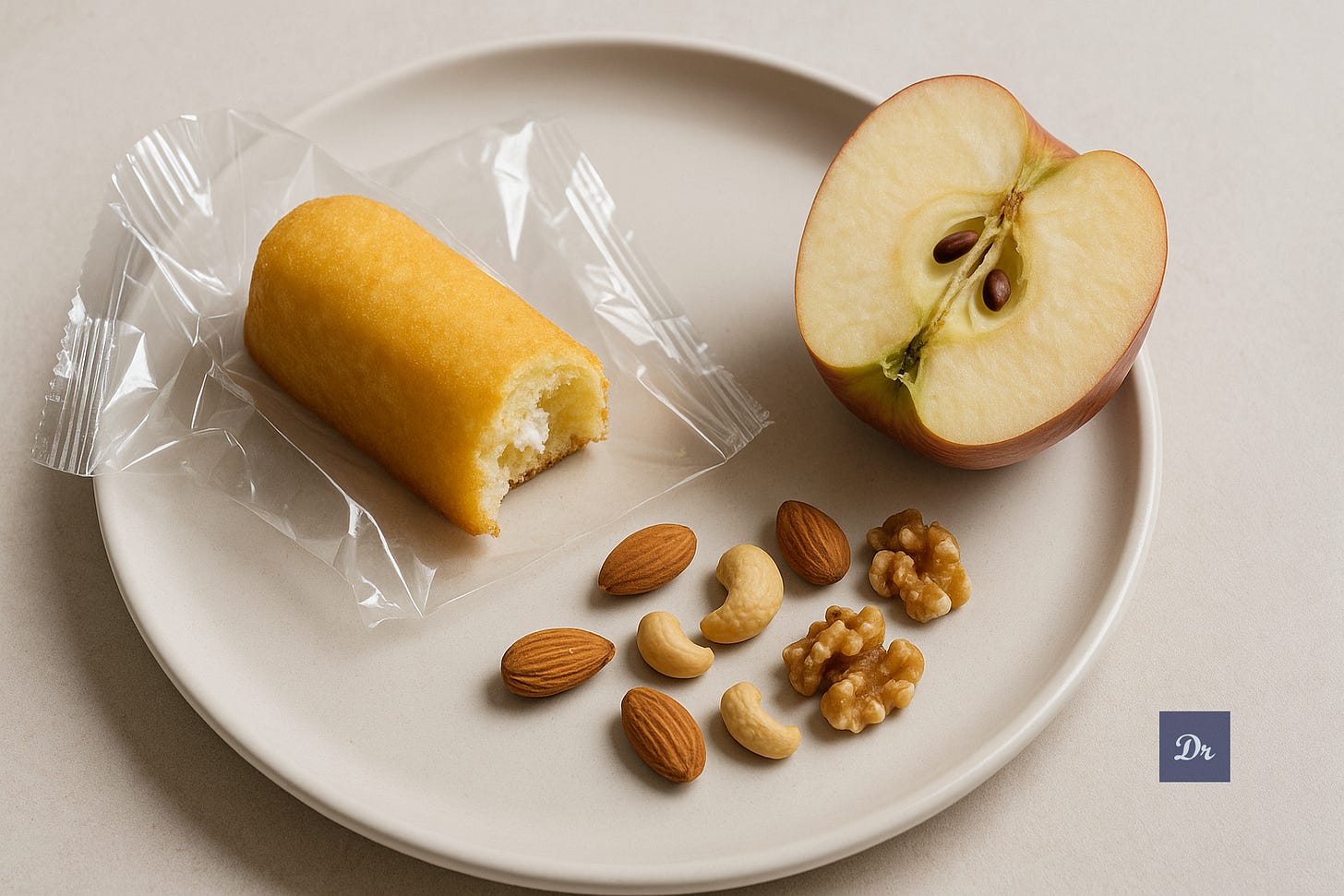9 Daily Habits to Protect Your Gut for Life - Avoid Crohn's or Ulcerative Colitis
What the data say about diet, antibiotics, vitamin D, and movement to lower Crohn’s and colitis risk.
Crohn’s disease and ulcerative colitis are chronic inflammatory gut conditions. Together they’re often called “IBD.” You don’t need a diagnosis to benefit from prevention‑minded habits. Below is a concise, evidence-guided guide on what the data show, why it likely works, and one step you can take this week.
Kids, younger adults, and the elderly are developing these life-changing conditions more than before. IBD is one of the leading causes of needing a colostomy bag, immunosuppressive medications, and a major change in diet and lifestyle.
1) Mediterranean‑Style Eating
It’s not so much about eating Greek, Spanish, or Italian food. The Mediterranean nutrition profile just emphasizes more fiber, grains, fats, and healthier lean proteins.
The data: Diets rich in vegetables, fruits, whole grains, legumes, nuts, olive oil, and fish seem to be associated with lower incident Crohn’s or Ulcerative Colitis in prospective cohorts.
Why it works: Fiber and polyphenols feed butyrate‑producing microbes, support the gut mucus layer, and calm immune signaling.
One step this week: Build a dinner plate like: ½ vegetables, ¼ whole grains, ¼ legumes or fish, cooked with olive oil.
2) More Total Fiber (From Your Food)
Adding more fiber to your diet even if you change nothing else is the best way I know to feed the gut bacteria what they need to flourish.
The fact: Higher long‑term fiber intake associates with lower Crohn’s risk; seen more so with insoluble‑rich plant foods (whole-grain bread, apples, lentils).
Why it works: Fiber ferments into short‑chain fatty acids that tighten barrier function and lower inflammation.
One step this week: Add 1 cup cooked beans or lentils to a meal and swap one refined grain for oats or brown rice.
3) Fewer Ultraprocessed Foods & Additives
You don’t have to stop all of your favorite foods. Removing your favorite ultraprocessed snacks may be less important than making sure you get the necessary fiber and polyphenols into your diet.
The fact: Greater intake of ultraprocessed foods (UPF) correlates with higher new‑onset IBD in multiple studies.
Why it works: Emulsifiers, excess added sugars, and high sodium can disturb the microbiome and erode the mucus barrier.
One step this week: Check labels. Skip items with polysorbate‑80 or carboxymethylcellulose. Choose the minimally processed option with the shortest ingredient list.
4) Less Red/Processed Meats
Not everyone will respond poorly to red and processed meats. If you're getting enough of the other good nutrients, processed meats may not even add much risk.
The fact: Proinflammatory eating habits with high saturated fat link to higher IBD risk.
Why it works: Certain fats and refined sugars alter bile acids and microbial balance toward a more inflammatory profile.
One step this week: Swap one red/processed meat meal for a bean‑based chili or grilled fish + whole grain.
5) Don’t Smoke
The fact: Smoking increases Crohn’s risk and worsens its course.
Why it works: Smoking shifts immune signaling and microvascular tone and promotes a dysbiotic microbiome.
One step this week: If you smoke, make sure that your other lifestyle habits are optimized. Even one less cigarette has a huge impact. You got this!
6) Be Conservative With Antibiotics
We're coming up on the cold and flu season and physicians desperately want to avoid prescribing unnecessary antibiotics. You can help us.
The fact: Repeated or unnecessary courses track with higher IBD incidence in dose‑response fashion.
Why it works: Broad‑spectrum antibiotics reduce microbial diversity and resilience, sometimes long‑term.
One step this week: If you catch a cold or have UTI symptoms, you might feel better with antibiotics but the more important question is whether they are truly necessary.
7) Keep Vitamin D Adequate
The data on replacing Vit D with supplements is still unclear. Getting vitamin D naturally however is definitely important.
The fact: Low vitamin D associates with worse IBD outcomes; observational data link adequate status with lower risk signals.
Why it works: Vitamin D influences mucosal immunity and tight‑junction proteins.
One step this week: Ensure that you’re getting enough sun this week. Go for a sun-exposed walk 2x this week.
8) Move Your Body For a Healthy Weight
Any movement will do and you don’t have to perfect it. Grab some exercise bands or do some squats while you wait for you coffee.
The fact: Active, healthier‑weight lifestyles associate with lower IBD risk in studies.
Why it works: Activity improves insulin sensitivity, reduces visceral inflammation, and favors beneficial microbes.
One step this week: Aim for a walk after your heaviest meal of the day. Doesn’t matter how long, just a good walk.
9) Breastfeeding May Help
The fact: Older studies suggested lower pediatric IBD with breastfeeding; newer multi‑cohort analyses are mixed.
Why it works: Early microbial seeding and immune training may help, but causality is unproven.
One step this week: If infant feeding is relevant, discuss goals with your pediatrician; prioritize overall infant nutrition.
My Overall Perspective
Associations are not proof. High quality trials are limited, so I try to focus on the most abundant data with plausible mechanisms.
Medical societies emphasize Mediterranean‑style eating, higher fiber, and limiting UPF as population‑level targets. This is a great place to start.
We have treatments for Crohn’s and Ulcerative Colitis but they are rather difficult diseases to live with. If you want to find out more about these conditions, the reddit subs can be a great place to start.
Next Steps…
Pick one action this week. Repeat it daily until it’s easy. Then add the next.
If you want a personal plan, labs, and a grocery list mapped to your life, book a 15‑minute Fit Call: https://calendly.com/ashori/fit-call
Sources:
Large prospective cohorts and society statements, including: Gut (2022), Nutrition Reviews (2025), Advances in Nutrition (2024), BMC Medicine (2024), AGA Clinical Practice Update (2024), Pediatrics (2023), JAMA Pediatrics (2017), IOIBD Consensus (2022), and IBD (2025).






